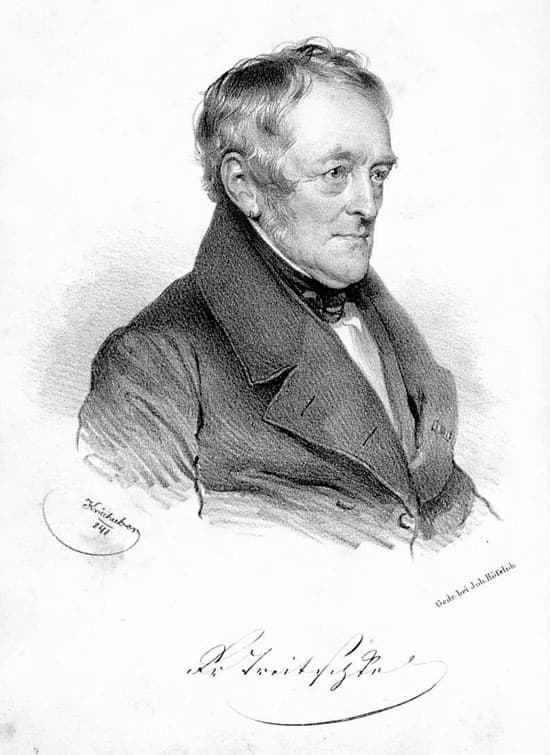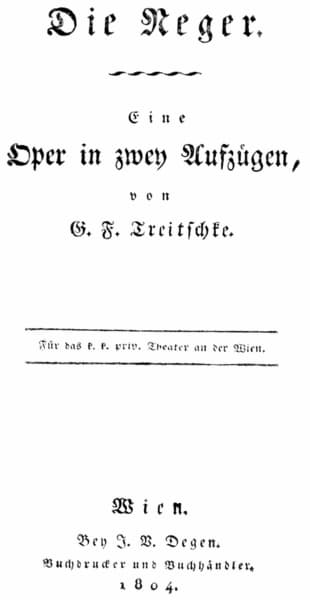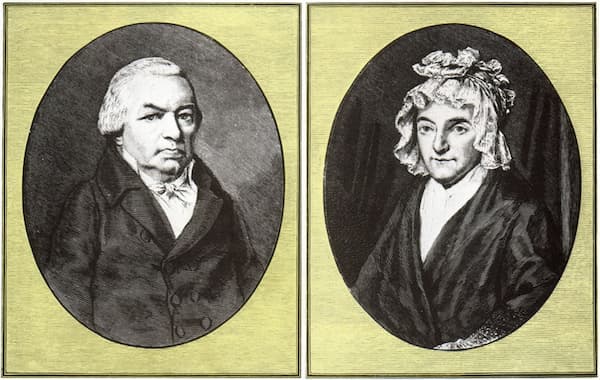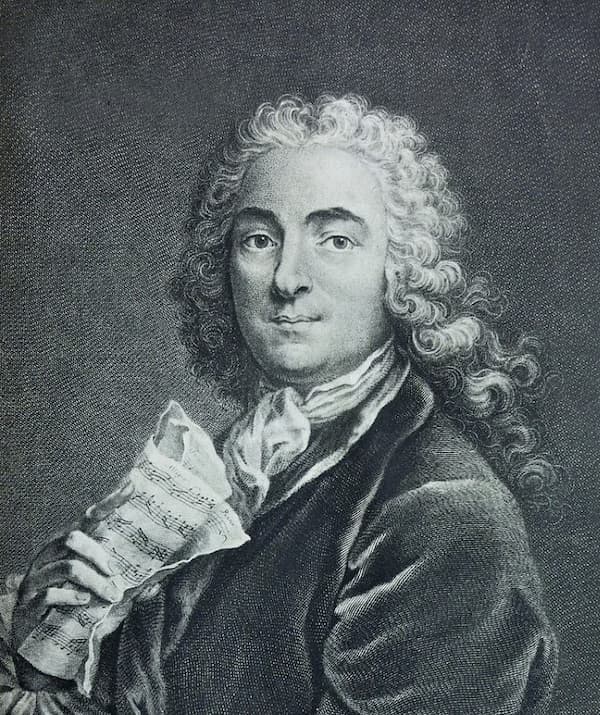Here is a racy story for an operatic play. Imagine a Caribbean island under colonial rule as the site of an interracial love story that ends with a kiss onstage. So what, I hear you say, it’s 2023 after all. But what if I tell you that this particular scene actually dates from 1804! Specifically, it comes from Antonio Salieri’s last Singspiel Die Neger (The Negroes) to a libretto by Georg Friedrich Treitschke. Oh my god, I can hear some of you say, what a horribly racist and offensive title. That was actually the reaction of one of my best friends and fellow students on campus. She is part of a small but aggressive crowd always carrying around an invisible headband proclaiming, “I want to be offended (preferably on behalf of somebody else).” What should Salieri reasonably have called it in 1804? Or even more intriguing, what would we call the opera if it were to be staged in 2023?
Antonio Salieri: Die Neger – Overture (Mannheim Mozart Orchestra; Thomas Fey, cond.)

Antonio Salieri
So, what do we actually find once we peek beyond the title? Supposedly, Salieri was known for campaigning in favor of the abolition of slavery, and the librettist Georg Friedrich Treitschke had already written the libretto for Fidelio. Here then is the plot. As I said, it takes place on an island in the Caribbean, which is under the colonial rule of England. Lord Bedford has the ambition to become governor of the colony, and by making false accusations has forced his rival Lord Falkland to flee the country. In addition, Lord Bedford has amorous intentions towards the beautiful Fanny, Lord Falkland’s fiancé and the daughter of the old governor, Lord Dellwill. After several years in exile, Lord Falkland returns in “Blackface” under the name “Jack” and enters into the services of Lord Bedford. In the meantime, Lord Dellwill has discovered uncontestable proof of Lord Falkland’s innocence, and he is ready to hold Lord Bedford accountable.

Georg Friedrich Treitschke
With his plans under threat, Lord Bedford instructs Jack to poison Lord Dellwill. When Lord Dellwill collapses at a fancy-dress ball, Lord Bedford unashamed celebrates his victory. However, Jack has exchanged the deadly poison for a harmless substance, and Lord Dellwill is not harmed. Jack now discloses his true identity, and Lord Bedford is arrested. With all obstacles removed, Lord Falkland and Fanny are getting ready to celebrate their wedding, and Fanny’s chambermaid Betty is free to marry her “John.” Apparently, this “act results in a beautifully inspired interracial love duet,” and the famous kiss onstage. Correct me if I am wrong, but I don’t see much racism in the libretto. Even the “Blackface,” which we are told over and over in our cultural sensitivity classes, is to be considered a deeply offensive and inaccurate caricature of Black people, is used to right a wrong and not to appropriate a racial stereotype. I have not been able to find a complete recording of the opera, but apparently “Salieri places all the characters on the same musical level,” suggesting that there is nothing demeaning or offensive in his musical characterization beyond the generic musical exoticism practiced at the time.”

Antonio Salieri’s The Negroes, title page of the libretto
A review of the opera appeared in the Allgemeine Musikalische Zeitung on 12 December 1804. It reports that the opera was “performed without applause… and although there are several good passages, especially in the first act […]: but on the whole one missed that power and character that one learns to appreciate more and more in Mozart’s and Cherubini’s works.” Another review published a week later reports the opposite; “this opera with the delicious music of Salieri has been given with great applause five times.” It was revived in Breslau in 1805 under the direction of Carl Maria von Weber. The musicologist Timo Jouko Herrmann has written a dissertation on the opera and he finds that the “poet places Europeans and blacks side by side with almost equal rights for the conditions of the time. Lord Dellwill explicitly calls the workers on his plantation friends or brothers, and at the end of the first act, they sit together at a large banquet table in front of the governor’s house… At the end of the play, the marriage of Betty and John reveals a completely relaxed approach to interracial marriage.” Amazing, and all that in 1804! Herrmann does believe that “the progressive tendencies of the opera were the ultimate cause for its premature cancellation at the time.” The overture, however, remained in popular circulation and selected arias and duets were performed in 2010. If the opera were to be staged in the near future, I hope it appears under the only sensible, and original title, Die Neger (The Negroes). However, it does need a historical, musical, and cultural frame, otherwise, my friend would just be going around being offended once again.
For more of the best in classical music, sign up to our E-Newsletter
Antonio Salieri: Die Neger (The Negroes), Act III “Picciola Sinfonia” (Mannheim Mozart Orchestra; Thomas Fey, cond.)



